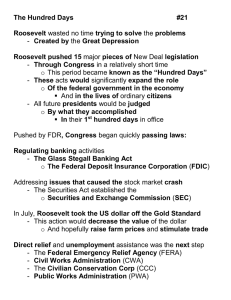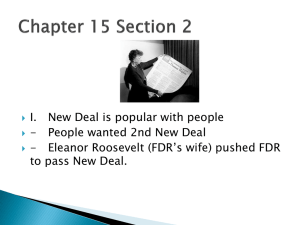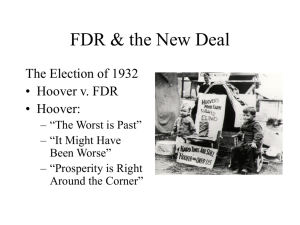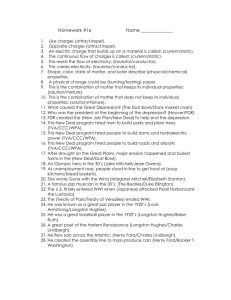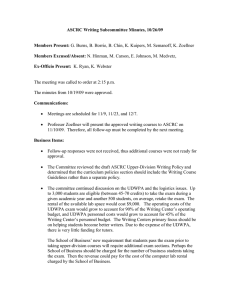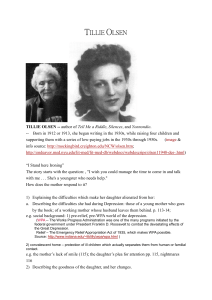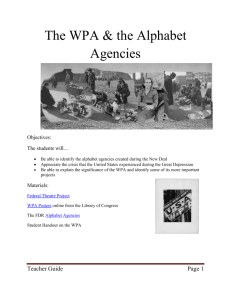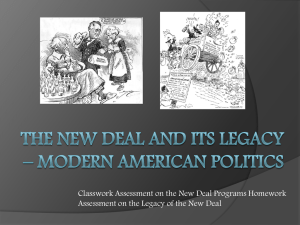Ethnic Revolution
advertisement
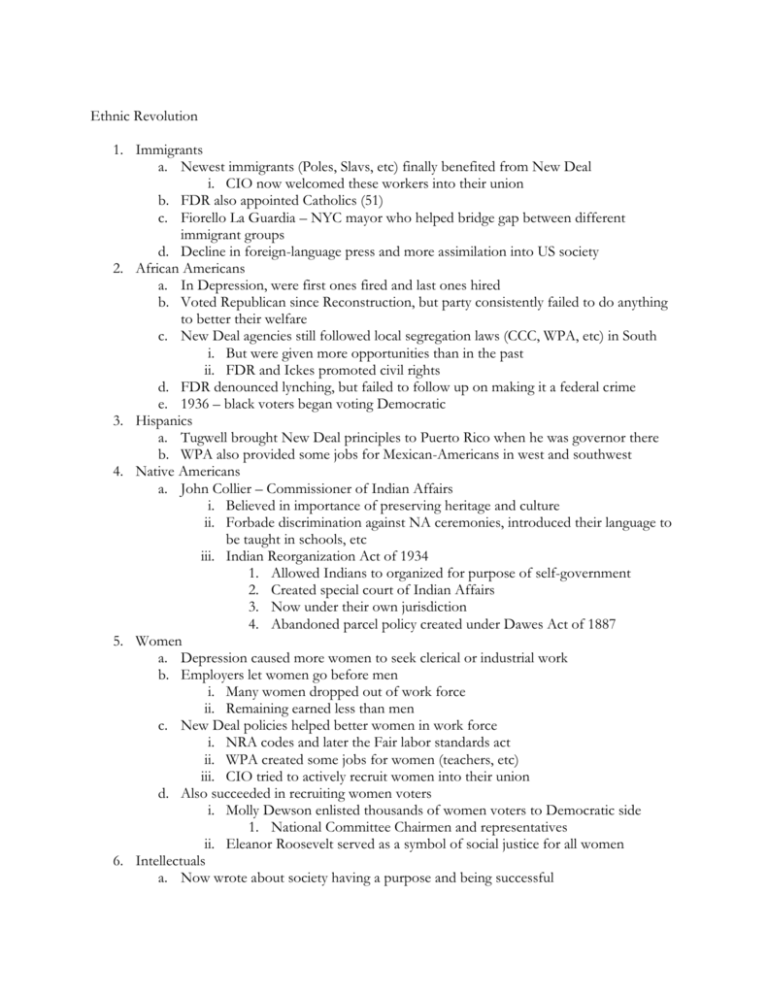
Ethnic Revolution 1. Immigrants a. Newest immigrants (Poles, Slavs, etc) finally benefited from New Deal i. CIO now welcomed these workers into their union b. FDR also appointed Catholics (51) c. Fiorello La Guardia – NYC mayor who helped bridge gap between different immigrant groups d. Decline in foreign-language press and more assimilation into US society 2. African Americans a. In Depression, were first ones fired and last ones hired b. Voted Republican since Reconstruction, but party consistently failed to do anything to better their welfare c. New Deal agencies still followed local segregation laws (CCC, WPA, etc) in South i. But were given more opportunities than in the past ii. FDR and Ickes promoted civil rights d. FDR denounced lynching, but failed to follow up on making it a federal crime e. 1936 – black voters began voting Democratic 3. Hispanics a. Tugwell brought New Deal principles to Puerto Rico when he was governor there b. WPA also provided some jobs for Mexican-Americans in west and southwest 4. Native Americans a. John Collier – Commissioner of Indian Affairs i. Believed in importance of preserving heritage and culture ii. Forbade discrimination against NA ceremonies, introduced their language to be taught in schools, etc iii. Indian Reorganization Act of 1934 1. Allowed Indians to organized for purpose of self-government 2. Created special court of Indian Affairs 3. Now under their own jurisdiction 4. Abandoned parcel policy created under Dawes Act of 1887 5. Women a. Depression caused more women to seek clerical or industrial work b. Employers let women go before men i. Many women dropped out of work force ii. Remaining earned less than men c. New Deal policies helped better women in work force i. NRA codes and later the Fair labor standards act ii. WPA created some jobs for women (teachers, etc) iii. CIO tried to actively recruit women into their union d. Also succeeded in recruiting women voters i. Molly Dewson enlisted thousands of women voters to Democratic side 1. National Committee Chairmen and representatives ii. Eleanor Roosevelt served as a symbol of social justice for all women 6. Intellectuals a. Now wrote about society having a purpose and being successful i. Opposite from 1920’s alienation 7. Arts a. WPA sponsored the arts considerably i. Put on plays, concerts, symphonies, etc ii. Federal Theater Project
